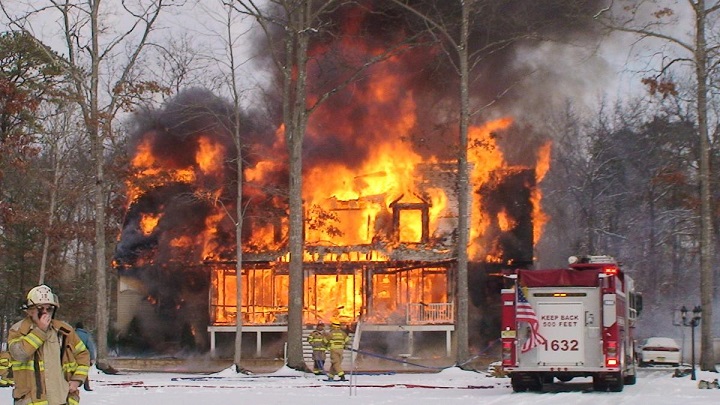A fire in your home, regardless of the scale, can be destructive and overwhelming to deal with. After the damage is done, you may feel extremely vulnerable.
You must have a plan in place in the event of an emergency. It’s near impossible to prepare for a residential fire, but there are certain steps you should follow after professionals extinguish the fire.
Here’s how to recover immediately after a fire in seven steps.

Wait Before Entering the Building
Even if your home seems safe from any danger, you should wait to enter the house. Fire damage is tricky to assess, so calling a professional first is the best practice, especially in states like Florida with high humidity. They can help determine whether the structure of your property is stable.
Aside from calling a disaster relief company, call your insurance company to start a claim. They’ll help you arrange for a place to stay and guide you through the next steps.
Also, call your loved ones to let them what happened and to assure them that you are safe.
Request a Copy of the Fire Report
As soon as you can, call the fire department and request a copy of the fire report. If they aren’t authorized to relay that information to you, they’ll put you in contact with someone who can.
The report will outline the following important details:
- Condition of your home
- The time and date of the fire
- Potential causes
Protect Your Property
To avoid looting and other potential accidents, keep your property secure after the fire. Your insurance company may require you to board up the windows. Ask them to provide specifics and contact emergency services for additional measures you can take.
If the utilities aren’t safe to use, the fire department will turn them off before leaving the site. Don’t turn them back on unless you were explicitly instructed to do so.
Also Read: Is your house ready for summer? Common summer hazards and how to protect your home
Cancel Your Credit Cards and Replace Lost Documents
If it’s safe to enter your house, try and locate any important documents that weren’t damaged. If you lost your credit cards, call your credit card company and cancel them immediately. There’s a chance that they’re still around, and someone else might stumble upon them.
Now’s also the time to replace things like your driver’s license, social security card, and any other essential documents.
Check for Water Damage
High-pressure fire hoses are necessary for putting out house fires. Sometimes, this can cause severe water damage to your house and spur mold growth.
If you’re concerned about water damage, contact a disaster cleanup company to assess the damage and come up with a restoration plan. Mold can grow quickly. You must act to remove it before it affects someone’s health.
Begin the Cleanup Process
It’s usually best to let a disaster relief company help you with the cleanup process. That’s because fire damage extends typically to parts of your home you didn’t realize were affected.
Soot, smoke, and residue from fire extinguishers are often too difficult for people to clean on their own. You can clean small damaged areas by yourself using a tri-sodium phosphate and water mixture.
Using a heavy-duty vacuum, you can begin to clean up soot and extinguisher residue. Carpets, curtains, and rugs should be cleaned by a professional.
Keep Your Emotions in Check
After a fire, you may experience extreme stress and overwhelming emotions. When you start to rebuild and restore your property, take note of how you’re feeling.
Consult a professional counselor if you’re having trouble dealing with the stress of the fire. Turn to family and friends for emotional support.
Bottom Line
It may seem impossible to get through this tragedy, but as you begin to rebuild, you’ll find that the negative emotions start to die down. Follow these seven steps for a faster recovery!